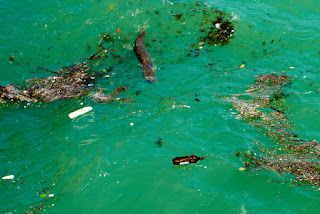by Bacopa Literary Review 2021 contributor Mandira Pattnaik
When I was asked to write what led to my fiction piece "Box," I really had no clue. Did it germinate out of the cookery shows on TV I'd watched as a young girl growing up in India, newly open to global cultures, and international icons through the liberalization of the economy? Or was it fancying an unachievable dream that's bound to collapse, given the constraints under which children in these parts grow up?
I'm not sure which, but to write it in future tense, as if happening in an imaginary time through the eyes of this motherless boy, felt the most natural thing to do.
The small-town conversations I've heard on my commutes form an essential part of this story:
Once inside the bus, he'll survey the passengers' faces, boarding and de-boarding, in the dim light of pre-dawn. The 5:45 will snake down the curve of the hill, climb onto the next and next. Most will not bother about the boy travelling alone, but the butcher will recognize him.
"Where to?" he'll ask. The boy will cook up a story about an ill grandmother.
"Never had a Granma, did you? She lived across the border, been dead long, no?"
"Sorry, she's--she's--an aunt, mother's third sister. Fractured hips."
"Oh, I see. But where's your father?"
"Home. Old enough to go alone!"
The picture of an exquisite countryside, the bustling eatery by the roadside, the apple orchard are all drawn from my travels within India.
The bus will leave the perches of the hills, slither into the plains where the district town the boy has never been before will have just woken up. At a bustling eatery, he'll get off with the others, trailing one particular family with three howling toddlers...
The story ends with a note, open to interpretation:
The tight box in life nobody escapes out of.
These themes of fate, choices, and one's own endeavors find expression in several of my published stories available online through my blog.
* * *
Read Mandira Pattnaik's "Box" (pp. 30-32) and other Fiction,
Poetry, Creative Nonfiction, and Prose Poetry
in Bacopa Literary Review 2021




